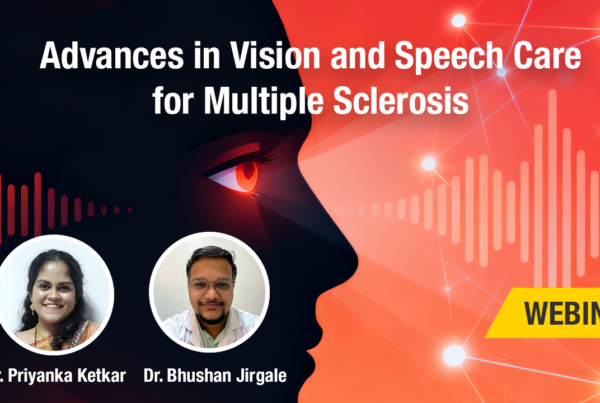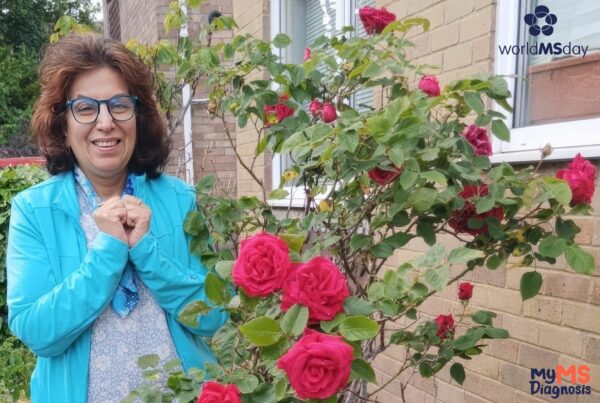National Webinar on “MS: First Symptoms and Systemic Barriers” Sheds Light on Early Diagnosis Challenges
In a significant step towards enhancing awareness around Multiple Sclerosis (MS), the Hyderabad Chapter of the Multiple Sclerosis Society of India (MSSI) hosted a national webinar titled “MS – First Symptoms and Systemic Barriers”. This event, a part of the World MS Day 2025 initiatives, featured a distinguished panel of experts who explored the multifaceted barriers hindering early MS diagnosis and highlighted the importance of timely intervention.
A Panel of Experts
The event brought together three eminent speakers:
- Dr. Sudhir Kumar, Consultant Neurologist, Apollo Hospitals, Hyderabad
- Dr. Ritu Agarwal, Senior Consultant Ophthalmologist, Swarup Eye Centre, Hyderabad
- Dr. Namita Singh, Consultant Psychologist, Apollo Hospitals, Hyderabad
Their collective insights formed a comprehensive narrative on the physiological, psychological, and systemic factors impacting MS diagnosis in India.
Key Takeaways from the Panel
Understanding Early Symptoms – Dr. Sudhir Kumar
Dr. Sudhir Kumar emphasized that MS often goes undiagnosed for long periods due to a combination of limited awareness, the high cost of diagnostic procedures like MRI and lumbar punctures, and a severe shortage of specialists. He traced the evolution of MS diagnosis in India, from being considered rare to now being increasingly recognized, thanks to growing awareness and improved access to imaging technology.
“The symptoms can be diverse, from vision loss and bladder issues to weakness, tingling, and cognitive problems. Many patients lose crucial time before reaching a neurologist with MS expertise,” he noted.
Dr. Kumar also stressed that early treatment significantly improves outcomes and can help achieve “NEDA” – No Evidence of Disease Activity in many patients.
Ocular Clues – Dr. Ritu Agarwal
As an ophthalmologist, Dr. Ritu Agarwal shed light on how optic neuritis, inflammation of the optic nerve, is often one of the first symptoms of MS. Unfortunately, these early visual disturbances, such as blurriness, color vision loss, or double vision, are frequently misattributed to more common conditions like migraines or cataracts.
“About 15-20% of MS patients present first with optic neuritis, and 75% will experience it during their lifetime,” she stated.
She pointed out that lack of awareness, even among healthcare professionals, combined with the spontaneous recovery of vision after the first attack, leads to patients dismissing symptoms and delaying follow-up.
Mental Health Matters – Dr. Namita Singh
Dr. Namita Singh addressed the often-overlooked psychological and emotional symptoms of MS, which can precede physical signs. Depression, fatigue, anxiety, and cognitive difficulties are common yet frequently misunderstood or ignored.
“Mental health issues in MS are under-diagnosed and poorly supported. There’s a massive gap in psychological care, especially in rural India,” she said.
Dr. Singh highlighted systemic issues such as stigma, insurance gaps, and lack of mental health professionals. She advocated for prioritising psychoneuroimmunology, understanding how mental states influence physical health, and stressed that emotional well-being is essential for disease management.
A Call for Action
This webinar underscored the urgent need for:
- Better public and professional awareness of MS
- Greater access to diagnostic tools and specialists, especially in rural areas
- Integrating mental health into MS care pathways
- Policy-level attention to insurance inclusion and resource allocation
MSSI Hyderabad’s initiative in organizing such a holistic discussion reflects the evolving landscape of MS care in India. With informed communities, empowered patients, and collaborative care, the vision of timely diagnosis and improved quality of life for those living with MS becomes increasingly achievable.


